Exploring Kenya’s Bitcoin Circular Economies: My Journey from Nairobi to Kiambu
By Belyi Nobel Kubwayo · August 2025
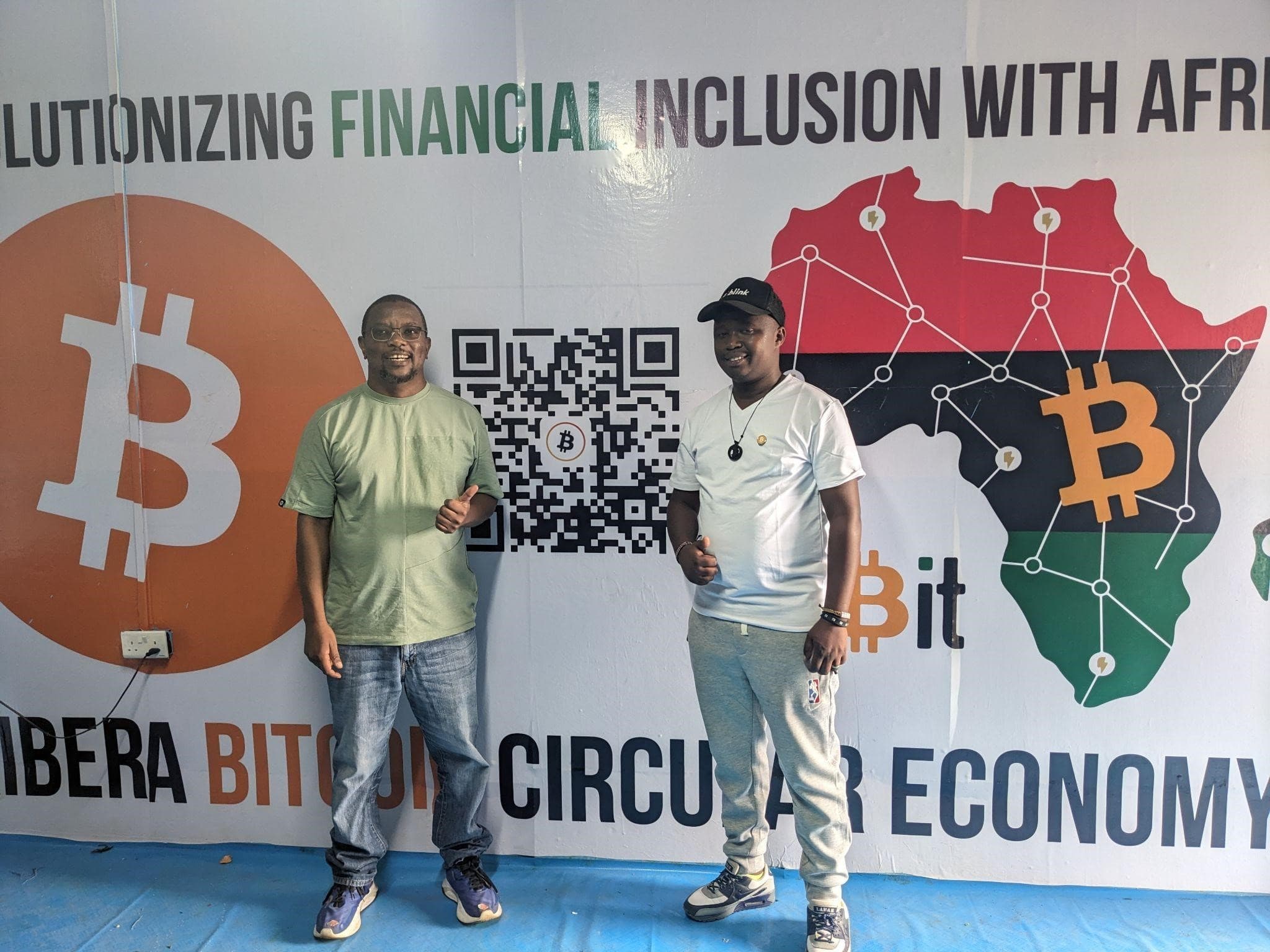
What if you could ride a motorbike, buy medicine, and feed your family all using Bitcoin? In Kenya, this isn’t a dream, it’s a growing reality powered by grassroots innovation and unstoppable community energy. From Nairobi’s bustling streets to remote villages in Kiambu, I witnessed firsthand how Bitcoin is transforming lives, one satoshi at a time.
From August 2nd to 4th, 2025, I had the incredible opportunity to visit three of the most impactful Bitcoin circular economy projects in Kenya. These initiatives, based in Nairobi and Kiambu, are not just about Bitcoin, they are about community empowerment, financial inclusion, and redefining what economic freedom can look like in Africa. As someone leading a similar journey with my team in Winteko, Burundi, this experience was both inspiring and motivating.
Day 1 – The CORE Githurai: Bitcoin is part of daily life
My first stop was The CORE Githurai, located in the bustling Githurai neighborhood of Nairobi. Founded and managed by Felix Mukungu, one of Africa’s pioneers in Bitcoin education, this project stands as a powerful example of grassroots adoption.
Arriving in Githurai, I was immediately struck by the energy and noise of Nairobi horns, vendors, and the vibrant chaos of daily life. But what caught my eye even more were the stickers on local shops proudly displaying “Bitcoin Accepted Here.” Here, Bitcoin isn’t a future concept, it’s already integrated into everyday transactions.
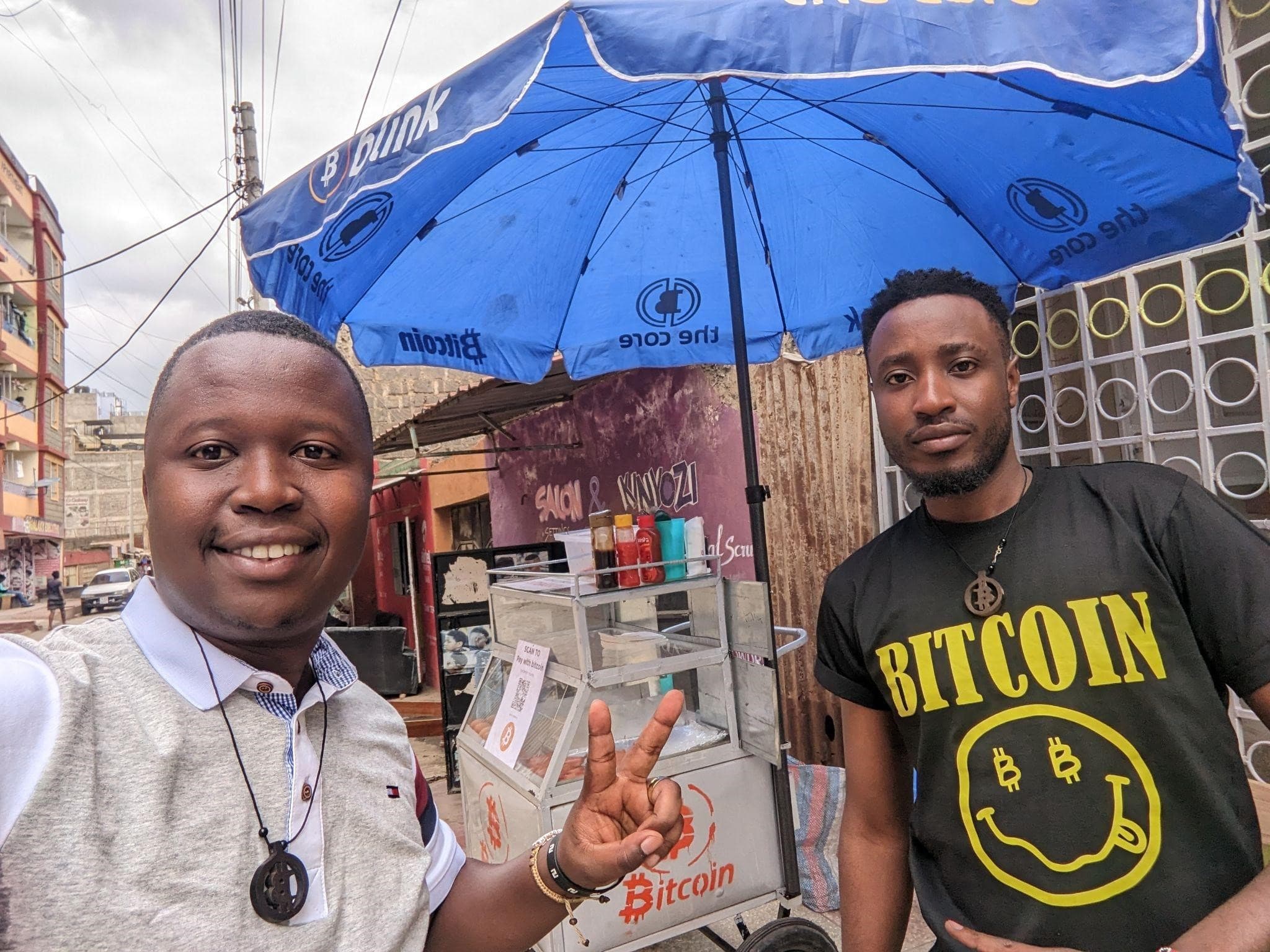
Merchants actively prefer Bitcoin payments. In fact, some shop owners told me they’d rather be paid in Bitcoin than Kenyan shillings, as they trust its long-term value and enjoy the convenience of instant, borderless payments.
Day 2 – Afribit Kibera: Bitcoin as a Social Revolution
The next day, I visited Afribit Kibera, led by Rony Mdawida. Kibera is one of the largest informal settlements in Africa, located in the heart of Nairobi. What I witnessed there left me both amazed and deeply moved. Afribit’s work in Kibera is nothing short of transformative.
More than 50 merchants accept Bitcoin payments, and many residents receive regular sats as part of Afribit’s community programs. These programs include waste collectors, children, boda-boda drivers, local dancers, and even football players. It’s a powerful ecosystem where everyone, regardless of background, can participate.
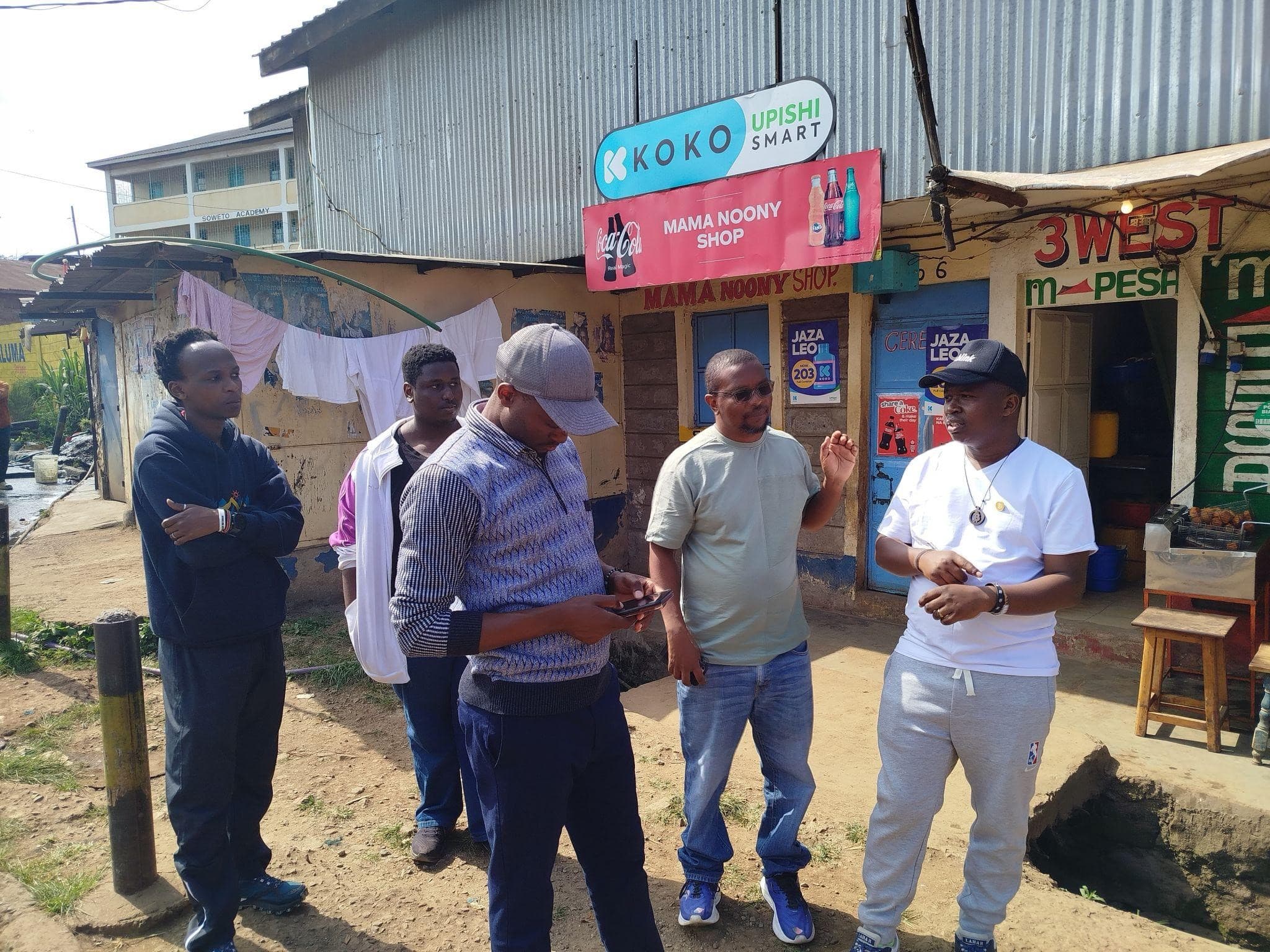
What makes Kibera unique is the high level of Bitcoin education. Everyone I met understood how to use it, and most proudly showed me their Blink Wallet app. One of my favorite moments was paying a boda-boda driver in Bitcoin using Blink wallet, no intermediaries, no conversion into shillings. He smiled and said: “I want Sats, not Kenyan shillings.”
Day 3 – Bitcoin Babies, Matangi: Empowering Mothers & Children
On my final day, I traveled to Matangi in Kiambu County to visit the Bitcoin Babies project. This initiative, warmly introduced to me by Eve, the program manager, touched me deeply. It focuses on empowering mothers with newborns through financial literacy and Bitcoin education.
Each beneficiary mother receives weekly sats as Proof of Work (PoW) for participating in the program. These sats are spent in a network of around 10 local shops that accept Bitcoin. I was welcomed by the doctor who runs Miale Medical Centre, one of the few hospitals in the world that accepts Bitcoin payments. This is also where mothers bring their children for care, creating a holistic ecosystem of healthcare and financial empowerment.
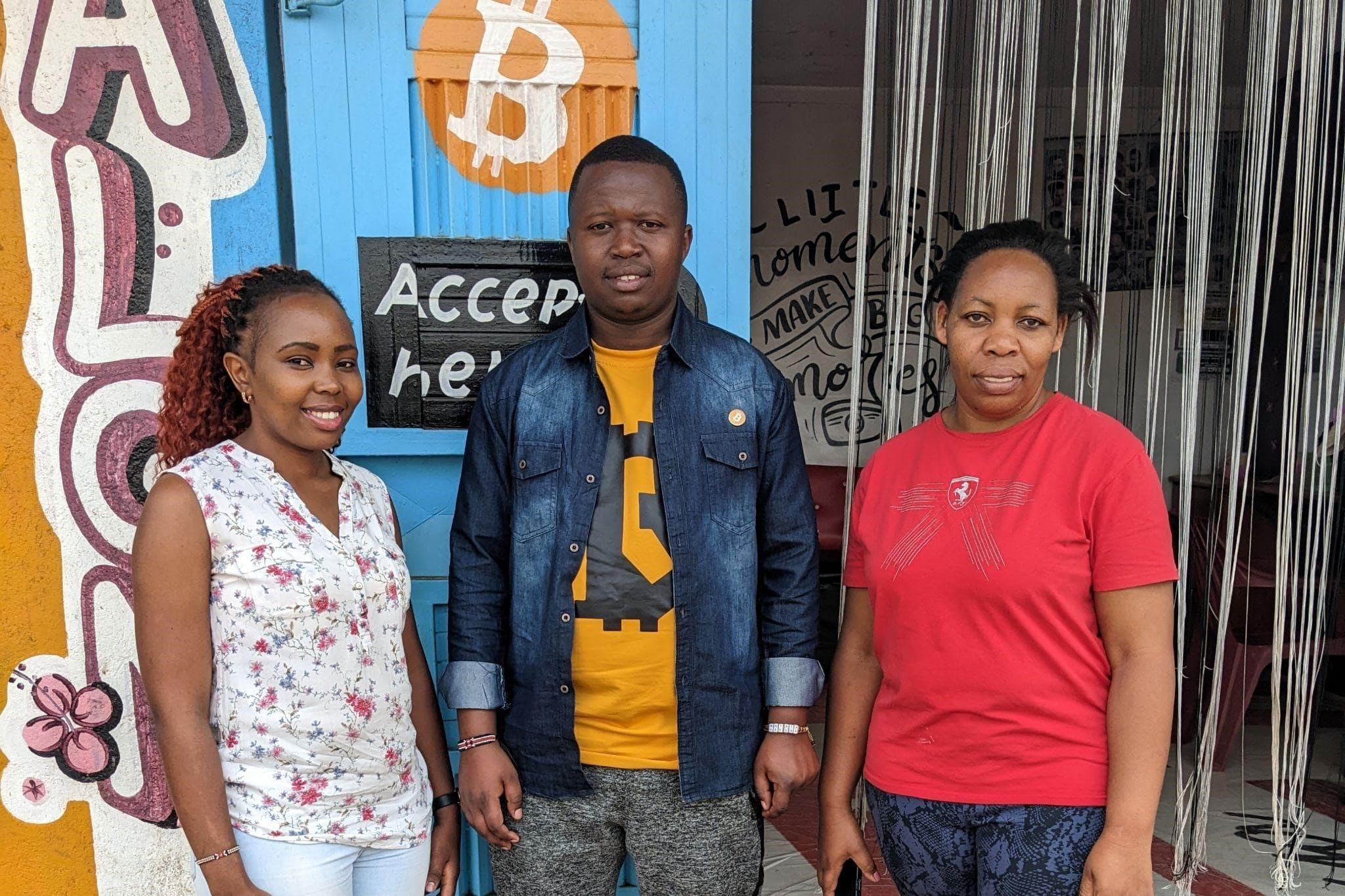
With Eve and Joyce Koigi, the Bitcoin-accepting hairdresser in Matangi
Later, I met Miale Joyce Koigi, a hairdresser who accepts Bitcoin payments and is a passionate advocate. She told me that many women prefer to buy Bitcoin via Bitika instead of holding Kenyan shillings, trusting its speed, efficiency, and lower transaction costs.
The Bigger Picture: Kenya’s Bitcoin Innovation
One of the things I loved most about Kenya is how innovative and proactive people are in embracing Bitcoin. From tools like Tando, which integrates with Mpesa, to the ease of buying Bitcoin through Bitika, the infrastructure is already strong.
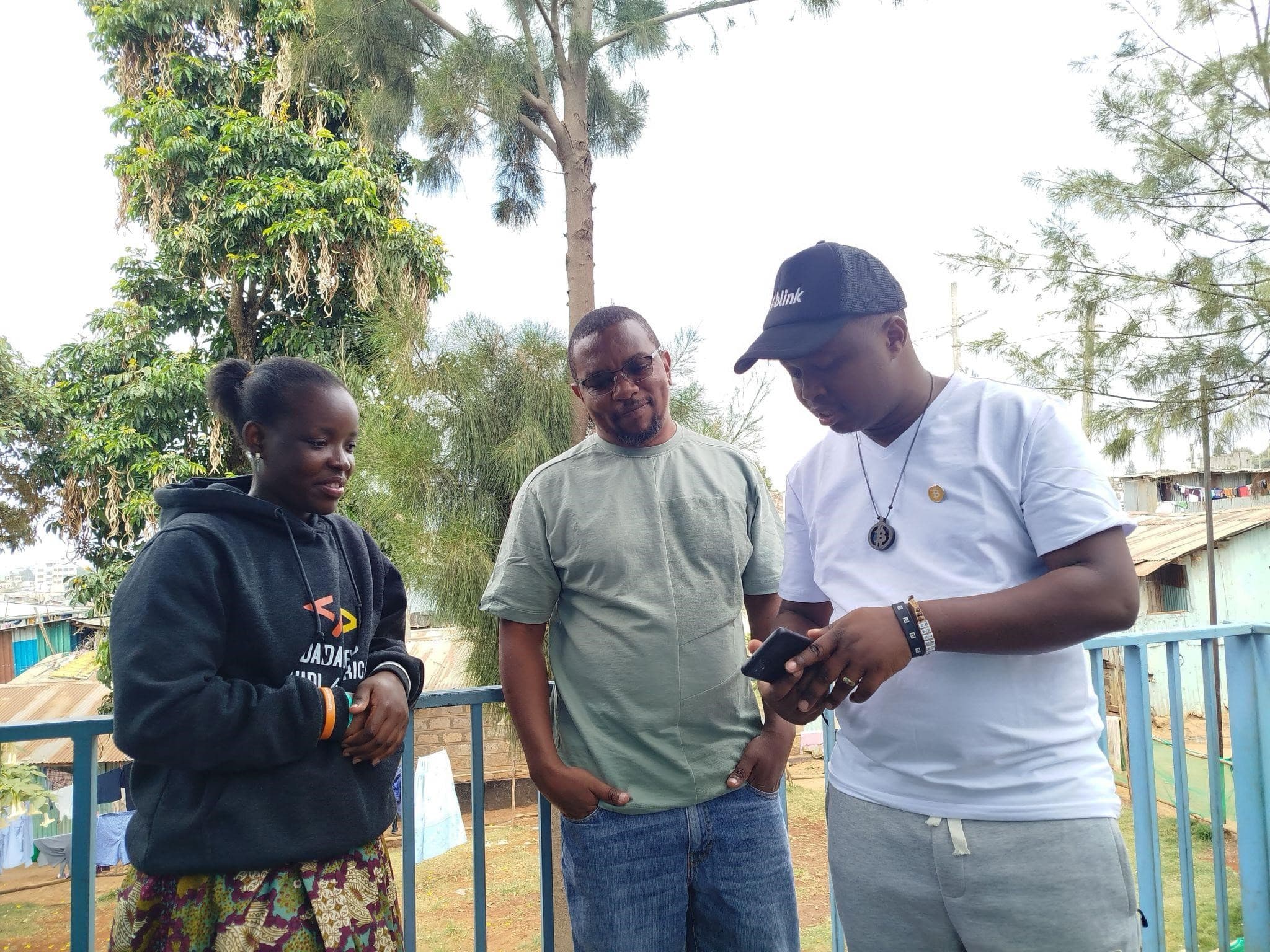
During my stay, I lived entirely on Bitcoin, a reality that many Africans still find unimaginable. But in Kenya, it works.
As I returned home to Burundi, I carried with me not just stories, but a renewed sense of mission for our Bitcoin circular economy in Winteko village. What’s happening in Kenya proves that with the right mix of education, infrastructure, and community engagement, Bitcoin isn’t just a digital currency — it’s a tool for freedom and prosperity.
Discover our project BTC Shule here .